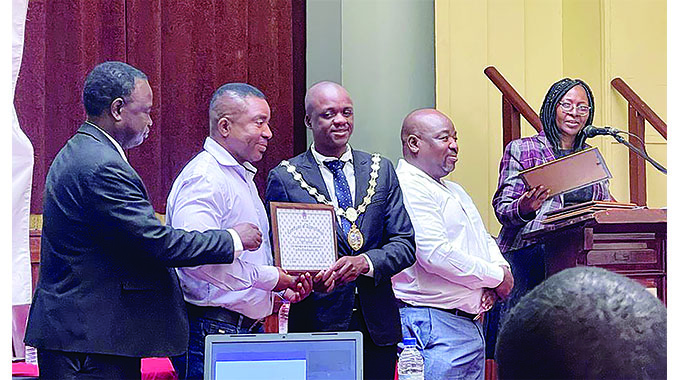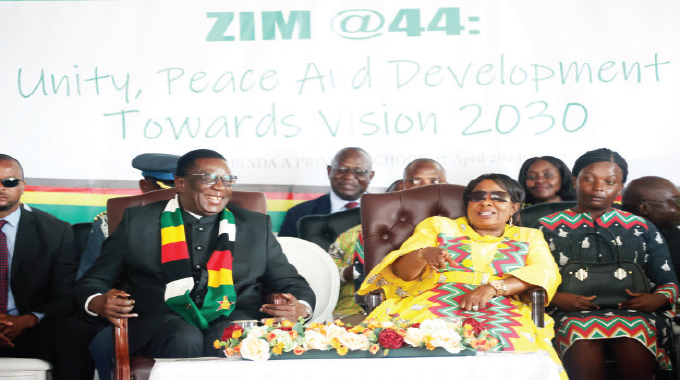Vic Falls to host 2025 Ramsar wetlands convention
Leonard Ncube, Victoria Falls Reporter
ZIMBABWE has won the bid to host the 15th Ramsar Convention of Parties (COP) on wetlands to be attended by more than 170 countries in 2025, as the country continues to invest in protecting wetlands and the environment at large.
China hosted the previous tri-annual conference three years ago, and Zimbabwe becomes the second only African country to host the event after Uganda.
Permanent Secretary in the Ministry of Environment, Climate, Tourism and Hospitality Industry Mr Raphael Tayerera Faranisi and the Ramsar secretariat, which is in the country, visited the resort city to assess facilities on Friday.
Mr Faranisi said Zimbabwe stands to benefit immensely in tourism and managing biodiversity among other areas from hosting the conference.
He said the country is capable of hosting 172 Ramsar countries as it has previously hosted international events such as the United Nations World Tourism Organisation in 2013, United National Economic Commission’s 6th session of the Africa Regional Forum on Sustainable Development (AFRFSD) in 2020 and Routes Africa which were attended by thousands of delegates.
“Zimbabwe’s bid to host the conference was accepted and as a first step towards hosting that conference which will take place in 2025, the secretariat is making its first visit to inspect facilities in Victoria Falls. So, we have been hosting the Ramsar deputy secretary general and secretariat members,” said Mr Faranisi.
The National Development Strategy 1 (NDS1) clearly stipulates the sustainable management of wetlands as one of the major objectives for the environmental sector in order to avert the depletion of the natural resource base and environmental degradation.
Zimbabwe designated a total of seven Ramsar wetland sites covering 28 582,40 hectares countrywide and developed the Wetlands Policy in 2021.
Mr Faranisi said Zimbabwe has been doing significantly well in maintaining wetlands. He, however, said the greatest challenge has been in urban areas where a number of developments have encroached into wetlands.
“It is our obligation to ensure that we abide by the principles and obligations to maintenance of our wetlands which are key to our environment and as part of the development process we have to ensure that we adhere to what we have set up as a nation,” he said.
“We should be able to host this conference and all we need to do is work closely with the secretariat. This is an opportunity for Zimbabwe to showcase some of the work done on wetlands and to provide leadership in terms of ensuring that the Ramsar convention is benchmarked.”
Mr Faranisi said there is a need to educate people on the importance of wetlands and their significance to the ecosystem.
Upon hosting the event, Zimbabwe will automatically assume the chairmanship of Ramsar.
Ramsar is one of the longest-established global multilateral environmental agreements and has 172 parties, and Zimbabwe became a party on 3 May 2013.
The convention looks at the maintenance of wetlands and the conference comes at a time when about 30 percent of wetlands globally have been lost due to human activities.
In many countries, Zimbabwe included, illegal settlements and other human activities have been carried out on wetlands most of which have dried up.
Ramsar deputy secretary general Mr Jay Aldous said Victoria Falls, also a recognised wetland, is a perfect venue for the conference.
“Hosting COP is a big responsibility, there will be 172 country delegations attending and there is a long tradition of countries that are well prepared to see that countries protect wetlands. Wetlands are under significant serious threat and we have lost 30 percent of wetlands in the last 50 years hence it’s important that countries take actions today to preserve and protect them,” he said.
The Ramsar Convention was developed in the 1960s in response to increasing concerns about accelerating the conversion and destruction of wetlands and the impact of this on both humans and biodiversity, especially waterbeds.
The Ramsar convention’s aim is to stem the progressive encroachment on and loss of wetlands now and in the future through the wise use of all wetlands.
Wetlands include all lakes and rivers, underground aquifers, swamps and marshes, wet grasslands, peatlands, oases, estuaries, deltas, tidal flats, mangroves, and other coastal areas, coral reefs, including all man-made sites such as fish ponds, rice paddies, reservoirs, and salt pans.-@ncubeleon











Comments